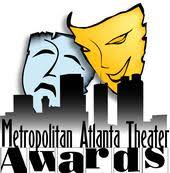Lots of great things are happening for Essential Theatre playwrights. Our friend Karla Jennings recently won the 2010 John Gassner Award for her play MONSTROUS BEAUTY, a riff on the life and times of the notorious Nazi filmmaker Leni Riefenstahl. This national prize was initiated in 1967 to recognize outstanding new work by American writers. Her play will receive a cash prize and a staged reading in New York City.
Karla was one of the first Georgia playwrights whose work we produced – back in 2000, when our production of her play IMAGES IN SMOKE was named one of the best 15 shows of the year by Creative Loafing. She’s been going great guns since then, co-founding the Atlanta group Working Title Playwrights in 2001, and that same year seeing a workshop production of her play DISH BABIES at the Two Roads Theater in Los Angeles, where it was nominated for three ADA awards. She was also awarded the Hermann Kesten Fellowship to have her play CLAY’S WAR presented at an international writers’ conference in Germany. THE RUBY VECTOR was chosen for development at the prestigious Lark Theatre in New York City, and won the 2005 Playwrights First Award. An earlier one-act version of this play had originally been commissioned by Georgia Tech’s DramaTech Theatre. More recently, Karla’s play THE SMILES won the Pillars Playwriting Prize and was given a workshop production at Georgia College & State University in Milledgeville.
Karla says: “Essential’s faith in playwrights strengthens their faith in themselves, which keeps them writing. Essential Theatre helps Georgia speak for itself.”
Lauren Gunderson won the Essential Theatre Playwriting Award in 2001, for PARTS THEY CALL DEEP, written when she was just 17 – we like to think we discovered her. A few years later she won again, for her play BACKGROUND, but she’s been having a fantastic career all over the U.S.A., with so many productions and commissions we haven’t been able to keep track of them all. Here are some of the recent highlights:
Last summer she was in residence at the Eugene O’Neill Center’s National Playwrights Conference, developing her play FIRE WORK with director Sean Daniels (formerly Artistic Director of Atlanta’s Dad’s Garage Theater). This year she’s been commissioned by the Kennedy Center’s Performances for Young Audiences group to write two new science-themed plays for youth, and she has also become the first-ever Playwright In Residence at the Kavli Institute for Theoretical Physics in Santa Barbara, California. Last year her play EMILIE: LA MARQUISE DU CHATELET DEFENDS HER LIFE TONIGHT was produced at California’s South Coast Repertory, and it’s now being published by Samuel French.
Coming up soon, Lauren’s play (EXIT, PURSUED BY A BEAR) will be featured in the Playwright’s Foundation Rough Readings Series in San Francisco, and right here in Atlanta on May 25 as part of Synchronicity Theatre’s SheWRITES Play Reading Festival. Also in Atlanta, her play DENISE² will be workshopped at Actor’s Express as part of the TURNER IN THE WORKS Series, on June 7.
Lauren writes: “The professionalism with which the Essential Theatre handled my work and delivered a beautiful performance allowed me entrance into the world of playwriting. It was an honor to work with them and a huge boost for my work to have won the Playwriting prize.”
And hey, how about Gabriel Dead, winner of this year’s Essential Award for his play QUALITIES OF STARLIGHT? Gabriel has such a big summer coming up that he won’t even be able to be here for the opening night of our production of his play – he’ll be working on another script of his, THE FREEMAN ELEGIES, in a residency at the Hangar Theatre in Ithaca, New York. Then he’ll be attending a week-long residency at the Eugene O’Neill Theater Center in Connecticut. Plus, his short play PIGSKIN will be performed as part of the Samuel French Off-Off Broadway Festival this summer!


